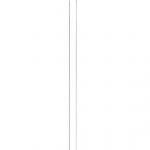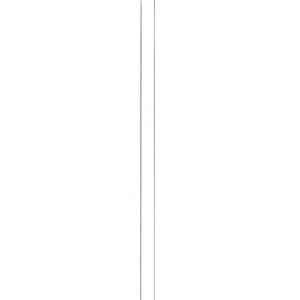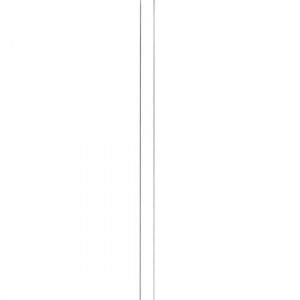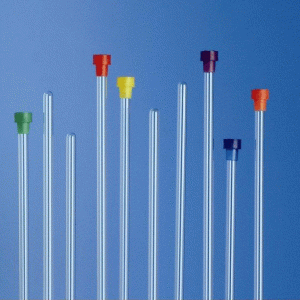5 mm Thin Wall Precision NMR Sample Tube 7″ L, 200MHz, Pack of 5
$49.67
- Description
Description
NMR Tubes – 5mm OD
Wilmad-LabGlass’s NMR Precision Tubes are manufactured from borosilicate glass that meets the requirement of Type 1 Class A glass from ASTM E438. Precision Tube has 3 fold less paramagnetic contamination comparing to the Economy tube, and can be operated safely at temperature up to 230 ˚C, and within a temperature step of 120 ˚C. Precision tube is rated as hydrolytic class 1, which states that the inner surface is resistant to strong acid and base at ambient temperature. Wilmad-LabGlass is adopting a unique precision shrinking and grinding process to shape the inner surface with maximized filling factor (10% more than Economy tube), and a tight ID and OD tolerance as small as 0.0065 mm. None of our competitors are capable to offer even close products. Each of our individual NMR tubes released into the market has been manufactured in the state-of-art facility in the United States and passed multiple NIST traceable gauge control and optical surface defect checks.
Specifications
- MHz Rating:200
- Length (inch):7
- OD (mm):4.9635 ± 0.0065
- ID (mm):4.2065 ± 0.0065
- Description:Thin Walled
- Wall Thickness (mm):0.38
- Concentricity (microns):51
- Camber (microns):51
- Pack Size: 5 Tubes
Application Notes
3 mm Economy Material ASTM Type 1 Class A Borosilicate Glass Impact on shimming quality by paramagnetic impurities1 Small (400 ppm Fe2O3) Rapid cooling/heating Yes, within 120 ˚C Max. working temperature 230 ˚C Sample volume reproducibility2 0.5% for sku with “-PP” Averaged Sample Volume within Rf coil 139.0 µl/cm Outer Diameter 4.9635 ± 0.0065 mm Cut-off wavelength 320 nm Compatible with Small Volume Insert Yes except sku with “-PS” Recommended Application Experiments that require critical shimming quality Note 1: Impact on shimming quality varies upon magnetic field strength. Economy tube is recommended for 1D low field experiments. Note 2: Sample volume reproducibility refers to the maximum volume fluctuation when filling different NMR tubes to the same sample height. This number correlates to the reproducibility of time domain signal amplitude between different runs.






